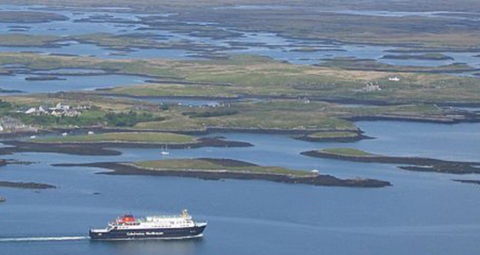November 1 | ![]() 0 COMMENTS
0 COMMENTS ![]() print
print

Could solutions to remote areas proposed by the Amazon synod work here?
Ian Dunn reflects on the recent Amazon synod, and discovers the Church in Scotland could benefit from many of its findings.
Despite my ability to order milk, tiles and books online, I’m no one’s idea of an Amazon expert. So the recently concluded Amazon synod at the Vatican seemed like something pretty hard to get excited about. I was aware of the various social media stramashes that accompany basically every piece of news these days but it all seemed pretty remote.
The one thing that caught my attention was the notion that there was a need to do something to tend to the Catholics left unattended in the vast remote innards of the great rainforest.
The reports in the media focussed on the fact that synod members said that a lack of priests means Catholics in the Amazon have only sporadic access to the Eucharist, reconciliation and anointing of the sick.
So, while highlighting the gift of celibacy in the Catholic Church and the need for celibate priests in the region, the document proposed the ordination of ‘suitable and esteemed men of the community, who have had a fruitful permanent diaconate and receive an adequate formation for the priesthood, having a legitimately constituted and stable family.’
Married priests
The attention this got rather glosses over the fact that we have married priests already. There are a couple in Scotland if you know where to look: priests who came over from Anglicism with a family pre-installed. They seem to travel along without issue, no reports of the sky falling in.
You can understand why a shift like this might leave some of the current priests feeling a bit short-changed. Still, I’m unconvinced that this change will entirely solve the problems of remote communities. For, while the more remote bits of Scotland might not share much climate with the Amazon, they have similar issues in terms of sacramental provision.
One thing I’ve learned about having a wife and family is that it makes upping and moving to the middle of nowhere, be it the Outer Hebrides or the inner Amazon, a tough sell—no matter how good the reason!
Mass availability
If you’ve got a car in the central belt, you’ve got options when it comes to Catholicism. I’m extremely fortunate to have four places offering Mass within seven minutes drive.
Yet away from the big towns and cities it’s far from easy. Delve into deepest Dumfries, far Aberdeenshire and the Islands and you could go a long time looking for a priest.
I’m someone who likes wild places, had family in the Outer Hebrides and likes the idea of living somewhere on the edge. Whenever I’ve weighed up a flit, in the con column has been the fact regular that Sunday Mass is unlikely to be easy to come by.
Sustaining communities
In a Scottish context, there are lots of married deacons who might well make excellent priests, but getting them to up and move to the back of beyond doesn’t seem that plausible.
So the line from that synod that caught my eye was the notion that to increase the Church’s presence in areas that lack priests, the post-synod document proposed that bishops entrust ‘the exercise of the pastoral care of the communities to a person not invested’ with the priesthood for ‘a specific period of time,’ while ‘the priest, with the power and faculty of the parish priest, is always responsible for the community.’
I don’t know what that means exactly, but it needs a fair bit of study because how we can sustain those Catholic communities on the peripheries is vitally important.
After all, when the cities and towns abandoned Catholicism in this country, it survived in the wilds, the islands, the places off the beaten track. If the Church is to survive in those places, it must be through supporting the ones who live there. There’s not a solution we can airdrop in.










